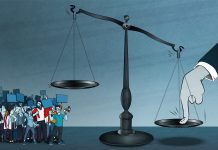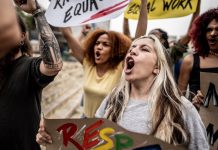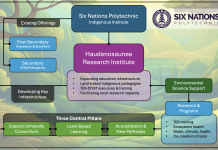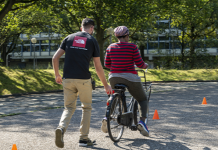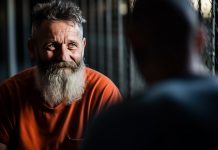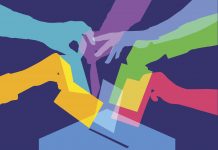Open Access Government produces compelling and informative news, publications, eBooks, and academic research articles for the public and private sector looking at health, diseases & conditions, workplace, research & innovation, digital transformation, government policy, environment, agriculture, energy, transport and more.
Home 2026
Archives
Volunteering in rural and urban communities isn’t one-size-fits-all
Rebecca Nesbit and Laurie E. Paarlberg argue that volunteering cannot be a one-size-fits-all solution, as the experiences of rural and urban communities demonstrate.
Afrikan studies and research in the human sciences
Discussing Afrikan studies, Kimani S. K. Nehusi highlights the importance of an Afrocentric perspective that positions Afrikans as active participants in their cultures and histories. He introduces the concept of the Afrikan Ancestral Land Complex (AALC), which includes the essential values, knowledge, and rituals that sustain Afrikan identity and community cohesion.
Deliberate structural injustice through law
Kati Rantala’s recent article on silent stakeholders addresses the dilemmas in normative inclusive lawmaking that often overlook harsh realities behind the rhetoric.(1) Here, she explores structural injustice in law and its impact on silent stakeholders in subordinate positions, citing examples from Finland.
Civic powerhouses: How organizations drive volunteering
Rebecca Nesbit and Laurie E. Paarlberg, focus on civic powerhouses, explaining how organizations, such as faith congregations, drive volunteering.
Democracy: From polarization to common ground
Jared Wesley, PhD, discusses how the Common Ground team at the University of Alberta helps individuals renew their commitment to decency and respect within democracies. This conversation addresses issues concerning political polarization and research on populism.
Refugee integration – Thoughts about what NOT to say and do
In the article, Philipp C. Wichardt highlights the importance of empathy in addressing anxiety about refugee movements. He argues that dismissing these fears is unhelpful; instead, acknowledging and validating them fosters connection and openness, ultimately reducing tensions and promoting integration.
Human history: Handshaking’s international journey
Penelope J. Corfield, from Royal Holloway, University of London, offers a compelling analysis of handshaking’s international journey in human history.
Fighting foreign information manipulation and interference
Highlighting the EU-funded ATHENA project, which supports Europe’s defence against foreign information manipulation and interference (FIMI). Dr David Wright and Dr Richa Kumar discuss various incidents and tactics used by countries to influence public perception and recommendations to improve media literacy and combat disinformation.
Towards Haudenosaunee research sovereignty: Investing in local research and training to support community development
The article emphasizes the importance of Indigenous Research Governance in Six Nations of the Grand River, addressing the harmful historical effects of academic research on Indigenous Peoples and advocating for structural changes that promote Indigenous data sovereignty and community ownership of research.
Decolonizing education in an era of neo-imperialism
Geraldine Balzer, an Associate Professor at the College of Education, University of Saskatchewan, discusses the importance of decolonizing education in a time of neo-imperialism.
Is civic engagement a potential path to decolonizing education?
Is civic engagement a potential path to decolonizing education? Here, Geraldine Balzer from the University of Saskatchewan provides an intriguing response.
Impact of colonialism: Where are our stories?
Geraldine Balzer from the University of Saskatchewan asserts that our stories are found when the Empire comes home; in this impact of colonialism focus.
Do violent extremists govern?
Morten Bøås, Norwegian Institute of International Affairs, explores if violent extremists govern, including a look at jihadi insurgents’ strategies.
Local exposure to asylum seekers promotes a more positive attitude toward ethnic diversity
Sigrid Suetens, Professor from Tilburg University School of Economics and Management, shows that local exposure to asylum seekers promotes a more positive attitude toward ethnic diversity.
Current challenges for European democracy
Cesare Pinelli, Professor of Constitutional Law at the University of Rome La Sapienza, discusses the reasons behind the EU’s vulnerability to criticism by populist leaders.
Understanding and supporting neurological conditions among the incarcerated
Samuel Han and Audrey Nath discuss neurological conditions among the incarcerated, who they argue are a medically underserved population.
Violent extremism: The journey in and the pathway out
Understanding and addressing violent extremism goes beyond just ideology. Morten Bøås of the Norwegian Institute of International Affairs suggests that looking at the underlying reasons and addressing its root cause might be crucial to finding solutions.
Offender-led religious movements: Why we should have faith in prisoner-led reform
Byron R. Johnson and Sung Joon Jang, both from Baylor University and Pepperdine University, suggest that the solution to criminal justice reform could lie in the prisoner-led faith programmes, which provide positive, cost-efficient rehabilitation.
Governance beyond the ballot: Norms, populism, and post-election preferences
In this article, Mariken A.C.G. van der Velden, Professor of Political Communication at Vrije Universiteit Amsterdam, explores citizens’ preferences for government formation.
Bridging the cultural divide in social discourse, Part 5: Practicing intellectual humility in the...
In this fifth and final article in this series, Peter C. Hill discusses bridging the cultural divide in social discourse, mainly practicing intellectual humility in the real world.



